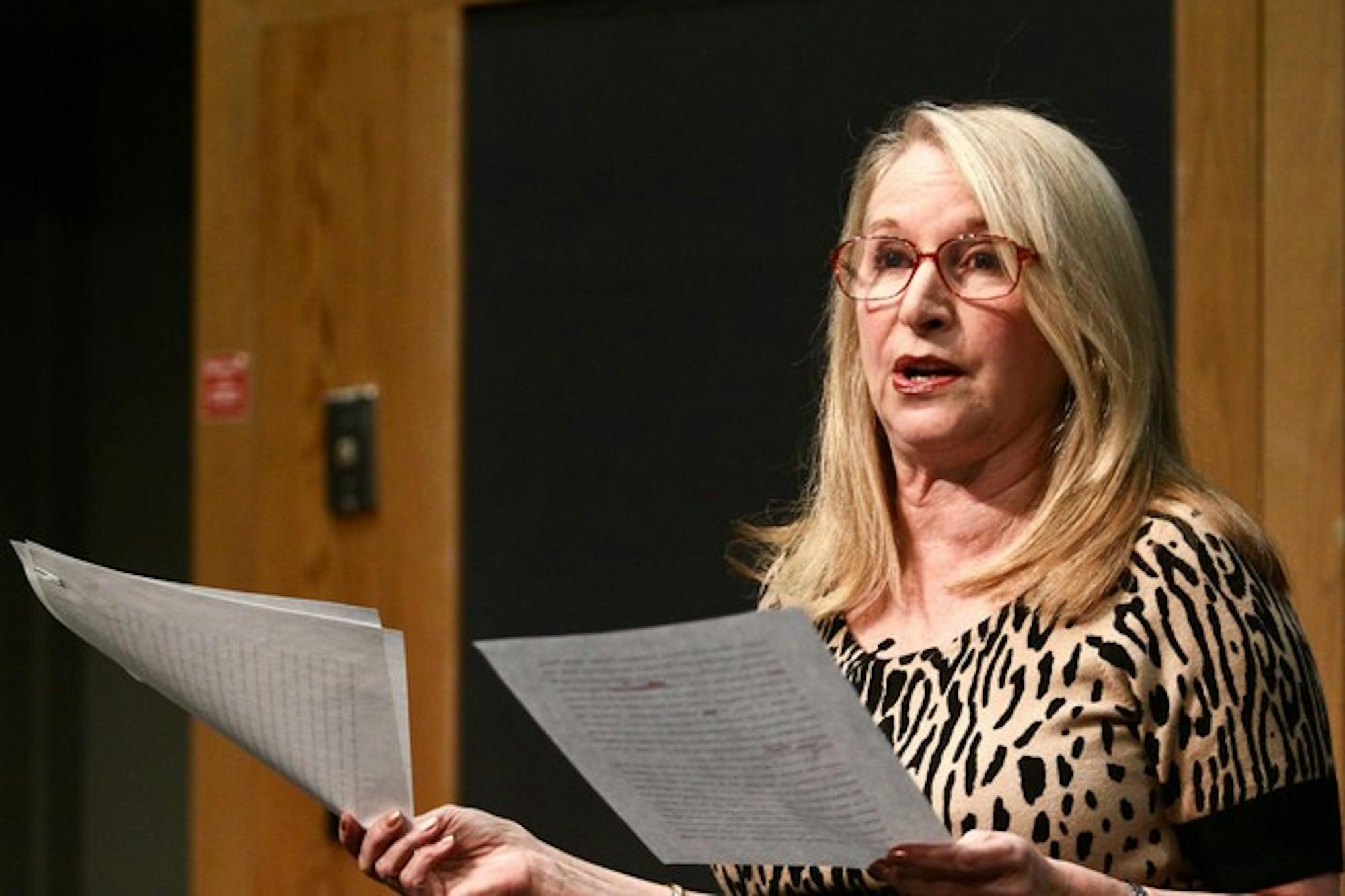Kellerman, who is spending the Fall term at the College while on leave from her post at the John F. Kennedy School of Government at Harvard University, emphasized the importance of teaching leadership as a "holistic whole."
"I would never have a course that focused on leaders to the exclusion of followers," Kellerman said. "Followers are every bit as important as leaders."
Kellerman's lecture "Shooting an Elephant,' or Why Be Leadership Literate" drew its title from an essay by George Orwell describing the actions of an official in British-occupied Burma. Studying Orwell's essay is the "single greatest example of the liberal arts approach" to leadership, according to Kellerman.
"You get the leaders, you get the followers, you get the context and you get the dynamic between the three," she said.
To examine leadership without "followership" provides a deficient view of leadership itself, she added.
"It's like saying, I'll do a tango without a partner,'" Kellerman said in an interview with The Dartmouth. "It's not nearly as attractive to students, but you can't be a leader without having at least one follower."
Bad "followership" can be just as harmful as bad leadership, Kellerman said in the lecture.
"For all my influence on follower power, what we're better at as followers is pulling down," she said. "[Followers] haven't figured out how to use some of this power and influence and translate it into something constructive."
In addition to overlooking followers, popular leadership literature and instruction also tends to ignore leadership failure, Kellerman said. "I don't quite understand that either it's kind of like talking about health without touching on disease," she said.
To combat negative leadership, Kellerman advocated for a "liberal arts approach" to teaching leadership and a further development of the "leadership industry," particularly in business schools.
"[The leadership industry] is a product of capitalism, and it thrives on the proposition that you can teach everybody how to be a leader," she said. "You don't need a special set of skills or special talents, and on top of that, you can teach these people how to be leaders fast."
Twenty-first century leaders must take different approaches to learning leadership skills from that of their predecessors because of globalization, according to Kellerman.
"How can you talk about leadership in the United States without taking account of what's going on in Brazil, China, India?" she said. "It just doesn't make sense to talk about leadership apart from the global context in which it's embedded."
Because of the challenges of globalization, the international environment is becoming less conducive to strong leadership, according to Kellerman. This trend has led to a lack of trust in leaders, particularly in America, she said.
Kellerman's lecture was based on themes from her most recent book, "Leadership Essentials on Power, Authority, and Influence." The book defines three "leadership tools," which Kellerman said society often fails to fully understand.
Society tends to analyze the first tool power in a purely positive light, but it can just as easily be negative, according to Kellerman.
"Most people in the leadership industry don't feel that coercion belongs to the leadership lexicon," she said. "I think coercion is a fact of life. In the real world, coercion matters."




